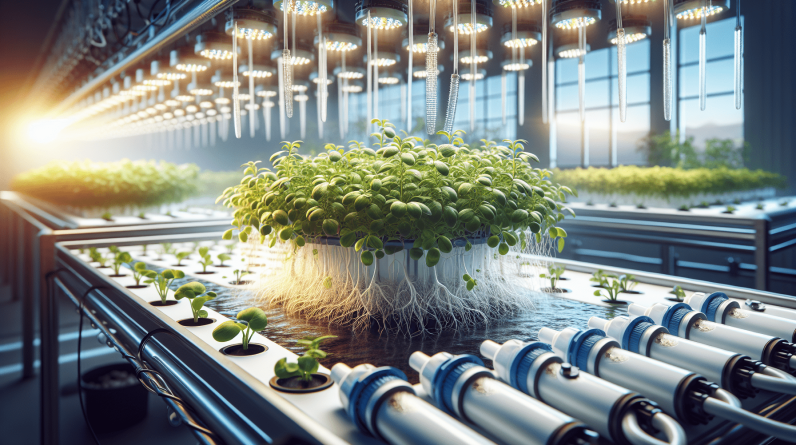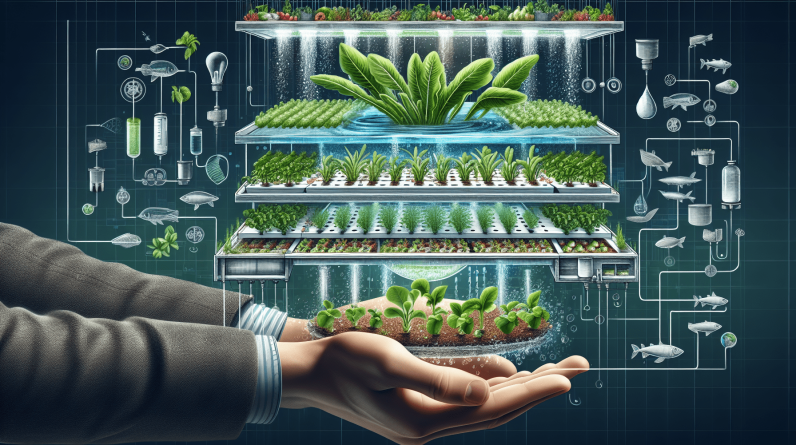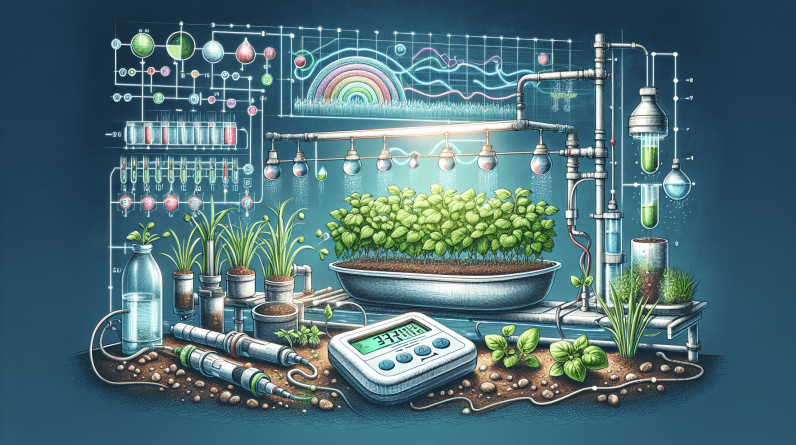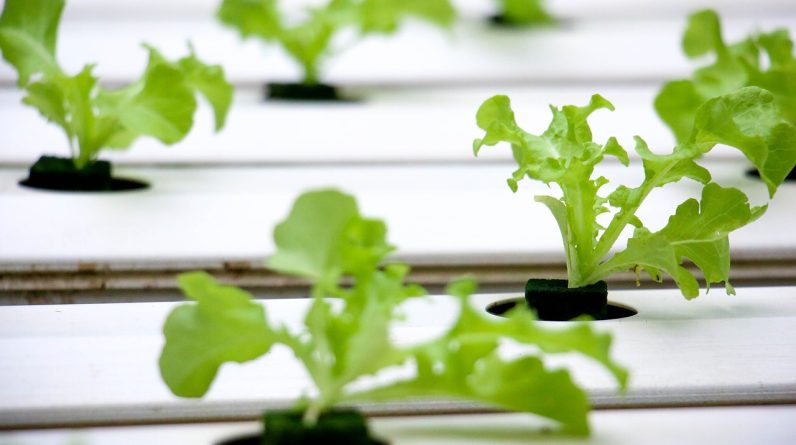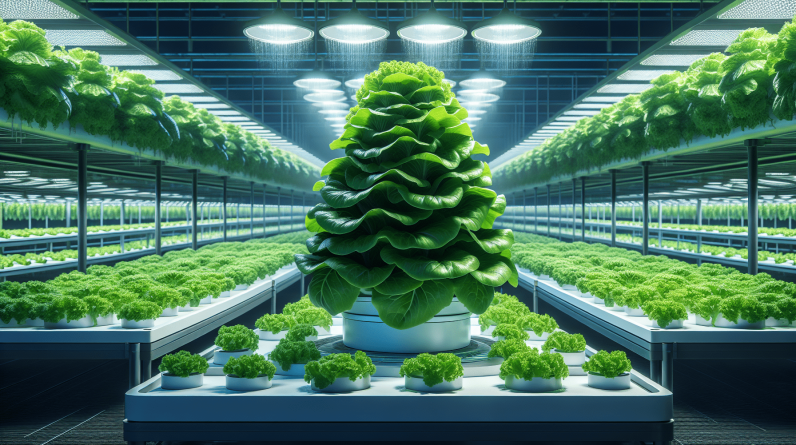
Is Hydroponic Gardening Truly Better Than Soil?
Introduction
If you’re a gardening enthusiast or someone looking to grow your own fresh produce, you may have come across the concept of hydroponic gardening. The idea of growing plants without soil might sound unconventional at first, but the benefits it offers cannot be ignored. In this article, we will delve into the world of hydroponic gardening and explore whether it is truly better than traditional soil gardening methods.
Understanding Hydroponics
Before we dive into the comparison between hydroponic gardening and soil gardening, let’s take a closer look at what hydroponics actually is. Simply put, hydroponics is a method of growing plants without soil, using water mixed with essential nutrients instead. This technique allows plants to absorb nutrients more effectively, leading to faster growth rates and increased yields.

Nutrient Absorption
One of the key advantages of hydroponic gardening is the efficient absorption of nutrients by plants. In traditional soil gardening, plants must expend energy to search for nutrients in the soil. This process can be time-consuming and often leads to competition among plants for available nutrients. In contrast, hydroponic systems deliver a nutrient-rich solution directly to the roots of the plants, ensuring that they receive all the essential nutrients they need to thrive.
Faster Growth Rates
The direct delivery of nutrients to plant roots in hydroponic systems results in faster growth rates compared to traditional soil gardening. With all the necessary nutrients readily available, plants can focus their energy on growth and development rather than searching for food in the soil. This accelerated growth rate is especially beneficial for commercial growers looking to maximize their harvest in a shorter period of time.
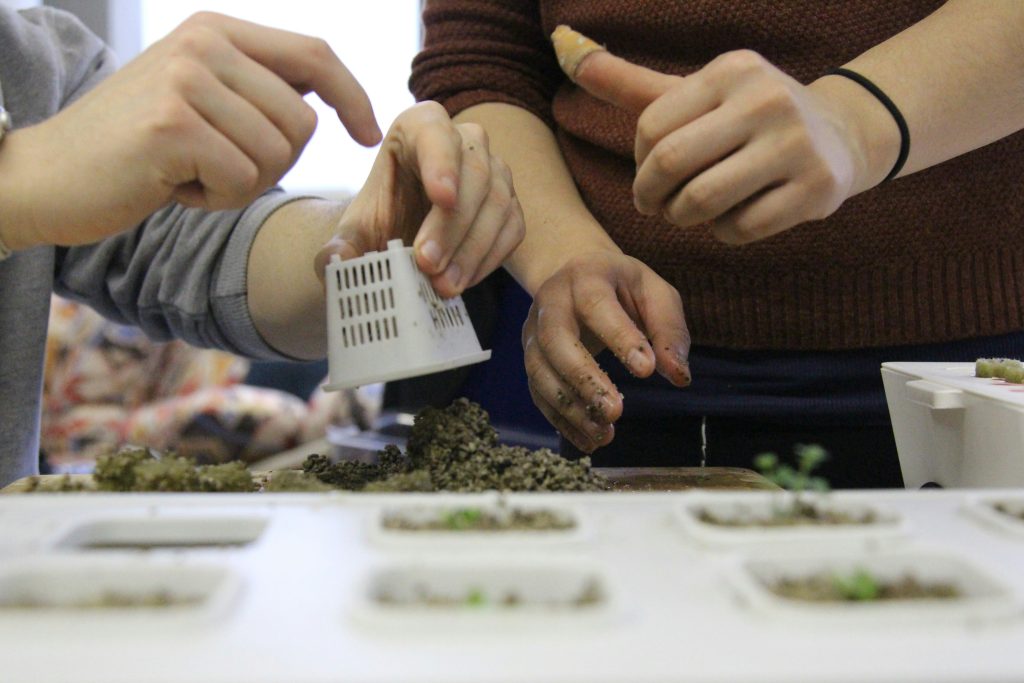
Water Conservation
One of the most significant advantages of hydroponic gardening is its ability to conserve water. Traditional soil gardening often results in water wastage due to evaporation, runoff, and inefficient irrigation systems. In hydroponic systems, water is recirculated and reused, leading to up to 90% less water usage compared to soil gardening. This makes hydroponics a more sustainable and eco-friendly option for those looking to minimize their water footprint.
Year-Round Cultivation
Another notable benefit of hydroponic gardening is the ability to cultivate plants year-round, regardless of external weather conditions. Traditional soil gardening is often limited by seasonal changes, with cold winters or hot summers affecting plant growth and yield. Hydroponic systems provide a controlled environment for plants, allowing them to thrive in optimal conditions throughout the year. This consistent growing environment is particularly advantageous for those living in regions with extreme weather conditions.

Reduced Risk of Pests and Diseases
Soil-borne pests and diseases can wreak havoc on a traditional garden, leading to damaged plants and reduced yields. Hydroponic gardening eliminates the need for soil, thus significantly reducing the risk of pests and diseases affecting your crops. Without soil to harbor harmful pathogens, plants grown hydroponically are less susceptible to infestations and diseases, resulting in healthier and more robust plants. This reduction in pest and disease pressure also minimizes the need for chemical pesticides and fungicides, making hydroponics a more environmentally friendly option.
Environmental Impact
When it comes to comparing hydroponic gardening to traditional soil gardening, it’s essential to consider the environmental impact of each method. Traditional soil gardening often involves the use of chemical fertilizers, pesticides, and herbicides, which can leach into the soil and waterways, causing pollution and harming ecosystems. Hydroponic systems, on the other hand, rely on nutrient solutions that are carefully balanced and controlled, minimizing the risk of environmental contamination. Additionally, the water-saving capabilities of hydroponics make it a more sustainable option in regions facing water scarcity or drought conditions.
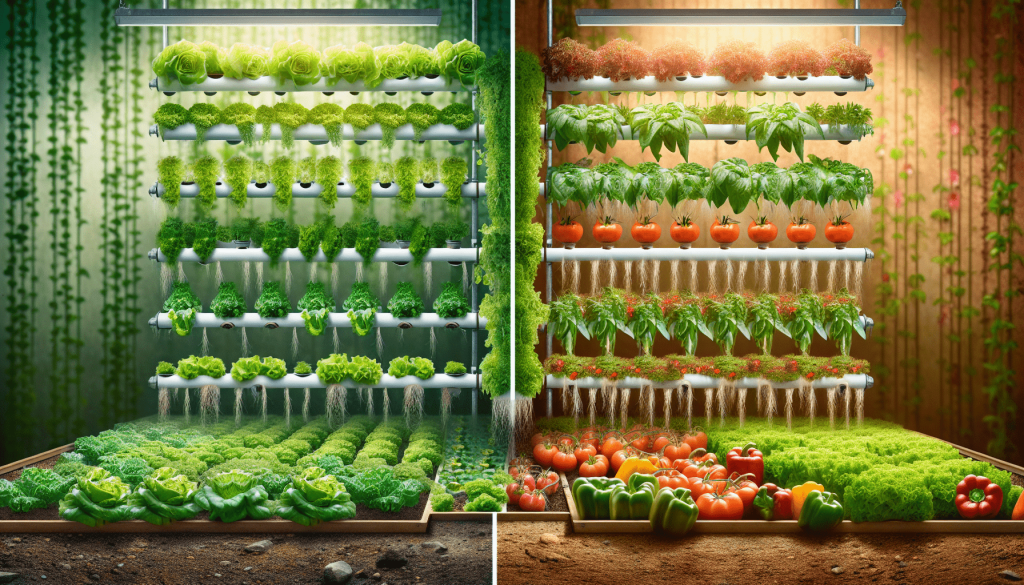
Cost Considerations
While hydroponic gardening offers numerous benefits, it is essential to consider the cost implications of setting up and maintaining a hydroponic system. Initial investments in hydroponic equipment, such as grow lights, nutrient solutions, and growing medium, can be higher than the cost of traditional soil gardening tools. However, over time, the increased yields and faster growth rates of hydroponically grown plants can offset these initial costs. Additionally, the water-saving capabilities of hydroponic systems can lead to long-term cost savings, making it a financially viable option for those looking to invest in sustainable gardening practices.
Versatility and Adaptability
One of the standout features of hydroponic gardening is its versatility and adaptability to various environments and growing conditions. Whether you live in a small apartment with limited outdoor space or a rural area with extreme weather conditions, hydroponic systems can be tailored to suit your specific needs. From small-scale systems like countertop herb gardens to large commercial setups in greenhouses, hydroponic gardening offers a flexible solution for growers of all levels. This adaptability makes hydroponics an attractive option for urban gardeners, commercial farmers, and anyone looking to grow fresh produce in a controlled environment.
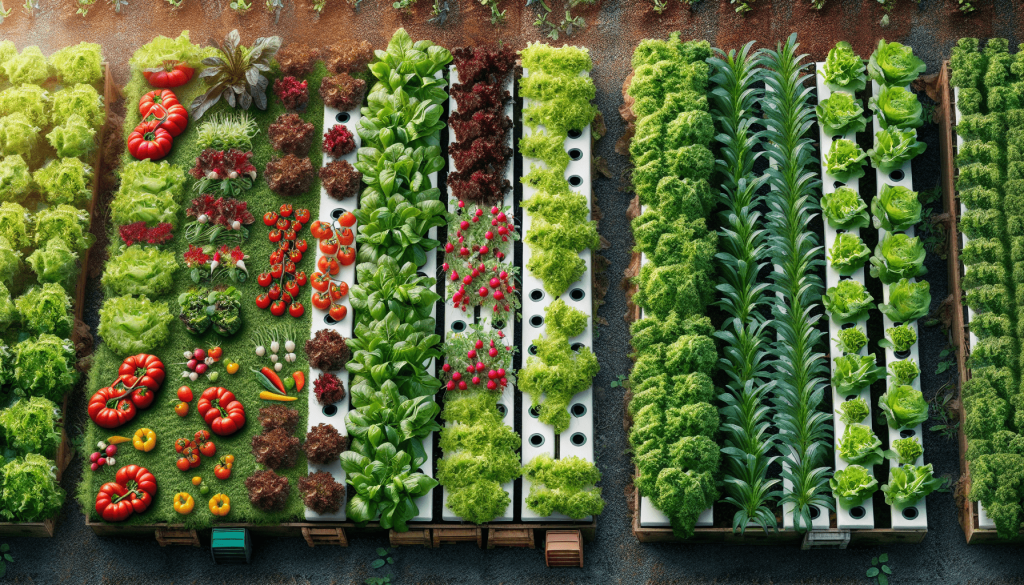
Comparison Table: Hydroponic Gardening vs. Soil Gardening
To help you visualize the differences between hydroponic gardening and traditional soil gardening, here’s a comparison table outlining the key characteristics of each method:
| Aspect | Hydroponic Gardening | Soil Gardening |
|---|---|---|
| Nutrient Absorption | Direct delivery of nutrients to roots. | Plants search for nutrients in soil. |
| Growth Rates | Faster growth due to optimized nutrient absorption. | Growth rate influenced by soil quality and nutrients. |
| Water Conservation | Up to 90% less water usage. | Higher water usage due to evaporation and runoff. |
| Year-Round Cultivation | Plants can be grown year-round indoors. | Seasonal limitations due to weather conditions. |
| Pest and Disease Risk | Reduced risk of pests and diseases. | Vulnerable to soil-borne pathogens. |
| Environmental Impact | Minimal use of chemicals and water. | Chemical fertilizers and pesticides can harm the environment. |
| Cost Considerations | Higher initial investment, but long-term cost savings. | Lower initial costs but ongoing expenses for fertilizers and pest control. |
| Versatility and Adaptability | Suitable for various environments and growing conditions. | Limited by outdoor space and climate. |
Conclusion
In conclusion, the debate over whether hydroponic gardening is truly better than soil gardening ultimately depends on your specific needs and preferences as a grower. While hydroponic systems offer numerous advantages such as faster growth rates, increased yields, and reduced water usage, they also come with higher initial costs and the need for careful monitoring of nutrient levels. On the other hand, traditional soil gardening may be more familiar and accessible to beginners, but it also poses risks such as soil-borne diseases and pests.
Ultimately, the decision to choose hydroponic gardening over soil gardening boils down to your gardening goals, available space, budget, and environmental considerations. Whether you’re looking to grow fresh herbs on your kitchen countertop or cultivate crops on a commercial scale, both hydroponic gardening and traditional soil gardening have their unique benefits and challenges. By weighing the pros and cons of each method and considering your individual needs, you can determine which approach is best suited to your gardening endeavors. Happy gardening!





